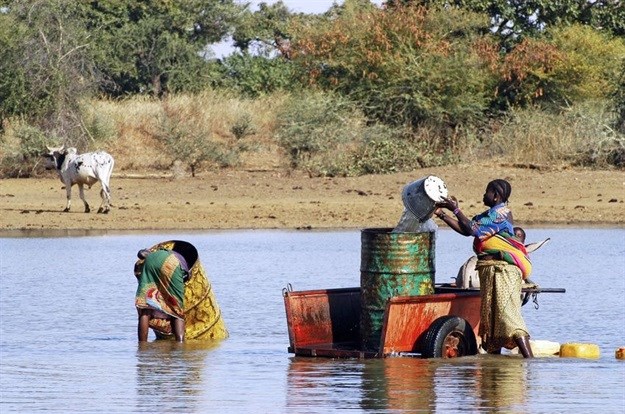“We know now that the displacement of people is because of natural hazards, and that climate change is a driver of migration and human movement,” said Kanta Kumari Rigaud, lead environmental specialist, regional climate change coordinator – Africa region, a panellist at the recent Fourth Africa Climate Resilience Investment Summit (ACRIS IV) which took place recently at the Sandton Convention Centre.
“Displacement of people and migration is becoming more frequent with climate change, as some areas become uninhabitable in the future,” he added.
'Need to up our game'
To stop it from becoming a crisis, we need to step up our game, he said, and get ahead of it by anticipating some of this mobility that is going to happen. “In Africa, with 80% of people engaged in agriculture, climate change will place a massive stress on this sector leading to the migration and displacement of people. Unless we plan for it, we will not be able to assist communities who will then have to strike out on their own.”
However, he said, this does not have to be a crisis. “Governments need to anticipate this and have integrated plans in place,” he said.
The right leadership is imperative for effective resilience building, said Jean Mukumwa, monitoring and evaluation officer of the Pilot Programme for Climate Resilience - National Project Coordination Unit (PPCR NPCU). “To ensure the right decisions are made at the right time with the right interventions and skills in place, there must be leadership supporting policies and initiatives,” he said.
He emphasised that this has to start with policy that flows from a resilience strategy that addresses both national and community needs. “Climate risk assessments must be conducted at ground level. An impact can vary from one area to another, only 10km apart. Therefore, community risk at community level must be accounted for if we are to address the challenges that community will face.”
Multisectoral approach
In Zambia, he said, they made use of established institutions and existing resources in areas and used a multisectoral approach. Monitoring investments must happen from the planning stage, not later in the project. “Monitoring in the beginning makes the project and investment more effective and also provides you a clear idea of what your expenses will be so you can budget and put the correct resources in place,” he added.
“Strong stakeholder engagement and communication is also important. “Quarterly and annual feedback sessions must be held and lessons on national and local levels shared across all platforms.”
Barbara Evans, a virtual panellist, said in her video to the summit that urban planning in Africa has to take climate change into consideration. “Climate pressure can seem overwhelming, but for city planning it forces us to think about sanitation and in more systemic ways, presenting challenges, but also the opportunity to think differently.”
She added that while climate stress in urban areas can seem daunting and requiring massive investment, active management drainage management can, for example, have a significant effect.
The main aim of the summit is to attract international private investors and development agencies to invest in infrastructure resilient projects in Africa. Hosted by GRV Global with key partners the World Bank Group, Nordic Development Fund (NDF) through the Africa Climate Resilient Investment Facility Partnership (AFR-RES) and the United Nations Economic Commission for Africa (ECA).























